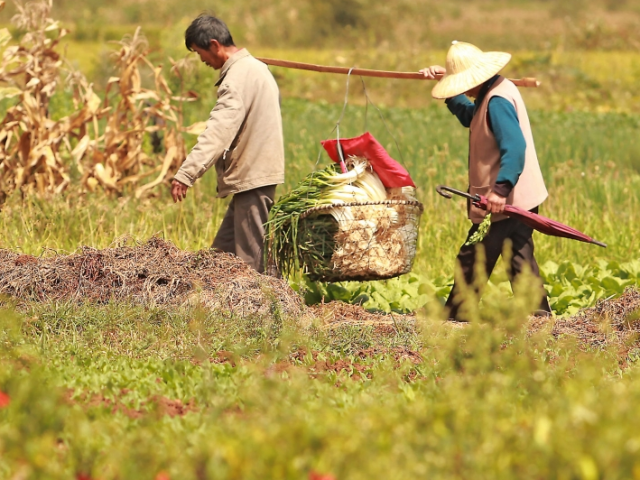Torrential rains and heavy flooding, hard on the heels of widespread drought and infestations of locusts and worms, have left China with rising consumer prices and troubling signs of a food shortage.
Floods have been the big story in China for the past month, with some 55 million people affected by some of the worst flooding seen in decades, both above and below the vast Three Gorges Dam on the Yangtze River.
Vietnam Times relayed Chinese state media reports of 3.76 million evacuees from 41,000 destroyed homes, with another 368,000 damaged. 5.28 hectares of farmland has been damaged and economic losses are approaching $1.45 billion.
All of these figures are substantially worse than the average flood season in China, but Vietnam Times noted the Chinese government claims a “miraculously low 158 dead or missing,” which is actually about 54 percent lower than the five-year average for flood-related fatalities.
Another serious problem caused by the floods involves transportation. Flooding has wiped out vital roads and bridges, while river traffic has difficulty navigating swollen, debris-choked waterways. These transportation issues will make it difficult to move food and other goods across the Yangtze region.
Among the many towns and cities flooded beneath the Three Gorges Dam is that most unfortunate of cities, Wuhan, whose residents “suspect the Three Gorges Reservoir has been kept low by unleashing the sluice gates out of fears that this summer’s floods upstream would overwhelm the mammoth showpiece project.”
Satellite photos published by Vietnam Times revealed the Yangtze and its tributaries are showing much higher water levels than anticipated, suggesting the Three Gorges Dam has not done as much as hoped to prevent flooding and might have made it worse.
The Epoch Times added these floods to China’s existing industrial and agricultural problems, including coronavirus lockdowns that delayed some important harvests. Even as heavy rains hammer south and central China, the northern regions are suffering from droughts, and there have been widespread problems with locusts and armyworms ruining crops.
Wheat crops were hit especially hard by drought, with some estimates showing 30 percent loss of production in the breadbasket Henan province and even worse losses of wheat, corn, and soybean crops in other northern areas. Some farmers in the north say the droughts destroyed their entire crop and some in the south are saying the same thing about harvests drowning under floodwater.
The locusts showed up in June, sweeping into southwestern China from Laos and reaching all the way to Hunan. Armyworm infestations were reported in Henan and other vital farming regions in July.
The Epoch Times saw numerous disturbing signs of an impending food shortage, including large releases of grain from China’s strategic reserves, whose actual size is one of the many things evidence suggests the Chinese Communist Party (CCP) might not be entirely truthful about. Domestic grain prices are soaring, while China is making record-high purchases of food from foreign suppliers, including the United States.
China’s consumer price index is steadily rising, including food prices. Bloomberg News saw profit opportunities for suppliers, as demand returns after the coronavirus lockdowns – assuming, of course, they can actually provide the goods consumers want, including both food for China’s tables and feed for its livestock. One Chinese analyst who spoke anonymously to the Epoch Times suggested the most immediate danger is a shortage of livestock feed, which could make meat scarce and dramatically raise its cost.
Forbes suggested another problem to add to the unappetizing mix of floods, droughts, and pests: the fear that China’s food reserves are considerably smaller than the CCP claims, and some of the food was stored improperly.
The South China Morning Post on Friday cited evidence that frightened Chinese farmers and traders are hoarding their inventories instead of selling food to the government. Since the central government is reluctant to admit this could be happening, because it would frighten the public even more, the national reserves could be much lower than normal levels. Last week, Chinese officials reportedly shut down an online trading system for grain purchased by state-run warehouses because so few traders were offering anything for sale.
If the burgeoning food crisis is even worse than it appears because inventories have spoiled, China’s food shortage could become a big problem for the Third World, which will find itself bidding for agricultural products against a huge nation with deep pockets and many hungry mouths to feed, in a global market where almost every harvest has been reduced by the coronavirus pandemic.

COMMENTS
Please let us know if you're having issues with commenting.